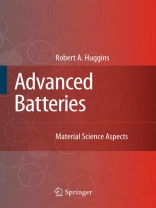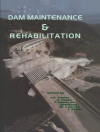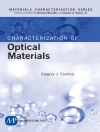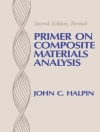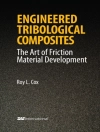Storage and conversion are critical components of important energy-related technologies. ‘Advanced Batteries: Materials Science Aspects’ employs materials science concepts and tools to describe the critical features that control the behavior of advanced electrochemical storage systems.
This volume focuses on the basic phenomena that determine the properties of the components, i.e. electrodes and electrolytes, of advanced systems, as well as experimental methods used to study their critical parameters. This unique materials science approach utilizes concepts and methodologies different from those typical in electrochemical texts, offering a fresh, fundamental and tutorial perspective of advanced battery systems.
Graduate students, scientists and engineers interested in electrochemical energy storage and conversion will find ‘Advanced Batteries: Materials Science Aspects’ a valuable reference.
Cuprins
Introductory Material.- Principles Determining the Voltages and Capacities of Electrochemical Cells.- Binary Electrodes Under Equilibrium or Near-Equilibrium Conditions.- Ternary Electrodes Under Equilibriumor Near-Equilibrium Conditions.- Electrode Reactions That Deviate From Complete Equilibrium.- Insertion Reaction Electrodes.- Negative Electrodes in Lithium Cells.- Convertible Reactant Electrodes.- Positive Electrodes in Lithium Systems.- Negative Electrodes in Aqueous Systems.- Positive Electrodes in Aqueous Systems.- Other Topics Related to Electrodes.- Potentials.- Liquid Electrolytes.- Solid Electrolytes.- Electrolyte Stability Windows and Their Extension.- Experimental Methods to Evaluate the Critical Properties of Electrodes and Electrolytes.- Use of Polymeric Materials As Battery Components.- Transient Behavior of Electrochemical Systems.- Closing Comments.
